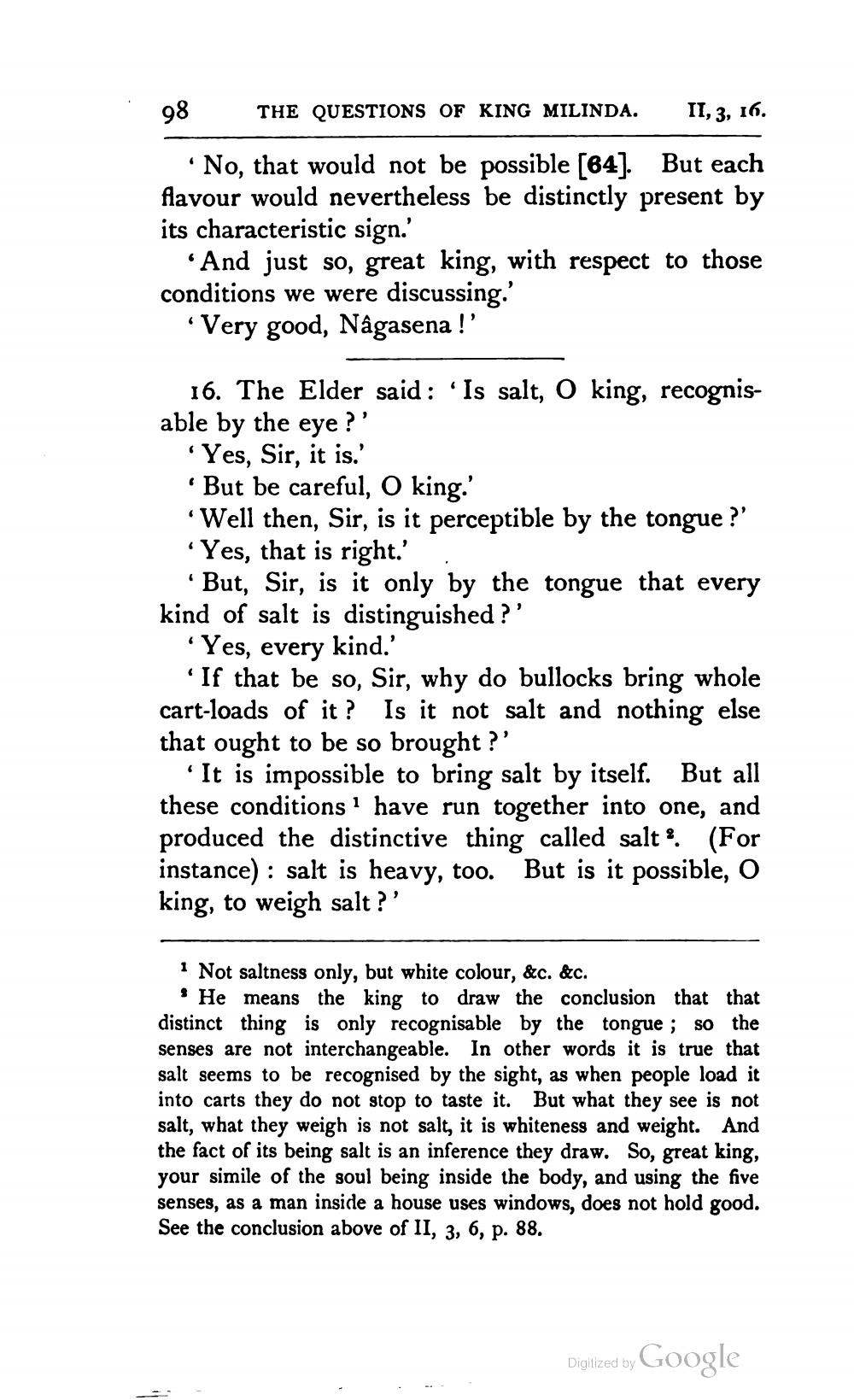________________
98
THE QUESTIONS OF KING MILINDA.
11, 3, 16.
No, that would not be possible [64]. But each flavour would nevertheless be distinctly present by its characteristic sign.'
And just so, great king, with respect to those conditions we were discussing.'
Very good, Nâgasena!'
16. The Elder said: 'Is salt, o king, recognisable by the eye ?'
Yes, Sir, it is.' But be careful, O king.' Well then, Sir, is it perceptible by the tongue ?'
Yes, that is right.' * But, Sir, is it only by the tongue that every kind of salt is distinguished ?'
Yes, every kind.' 'If that be so, Sir, why do bullocks bring whole cart-loads of it? Is it not salt and nothing else that ought to be so brought ?'
'It is impossible to bring salt by itself. But all these conditions have run together into one, and produced the distinctive thing called salt (For instance) : salt is heavy, too. But is it possible, O king, to weigh salt ?'
* Not saltness only, but white colour, &c. &c.
* He means the king to draw the conclusion that that distinct thing is only recognisable by the tongue ; so the senses are not interchangeable. In other words it is true that salt seems to be recognised by the sight, as when people load it into carts they do not stop to taste it. But what they see is not salt, what they weigh is not salt, it is whiteness and weight. And the fact of its being salt is an inference they draw. So, great king, your simile of the soul being inside the body, and using the five senses, as a man inside a house uses windows, does not hold good. See the conclusion above of II, 3, 6, p. 88.
Diglized by Google




